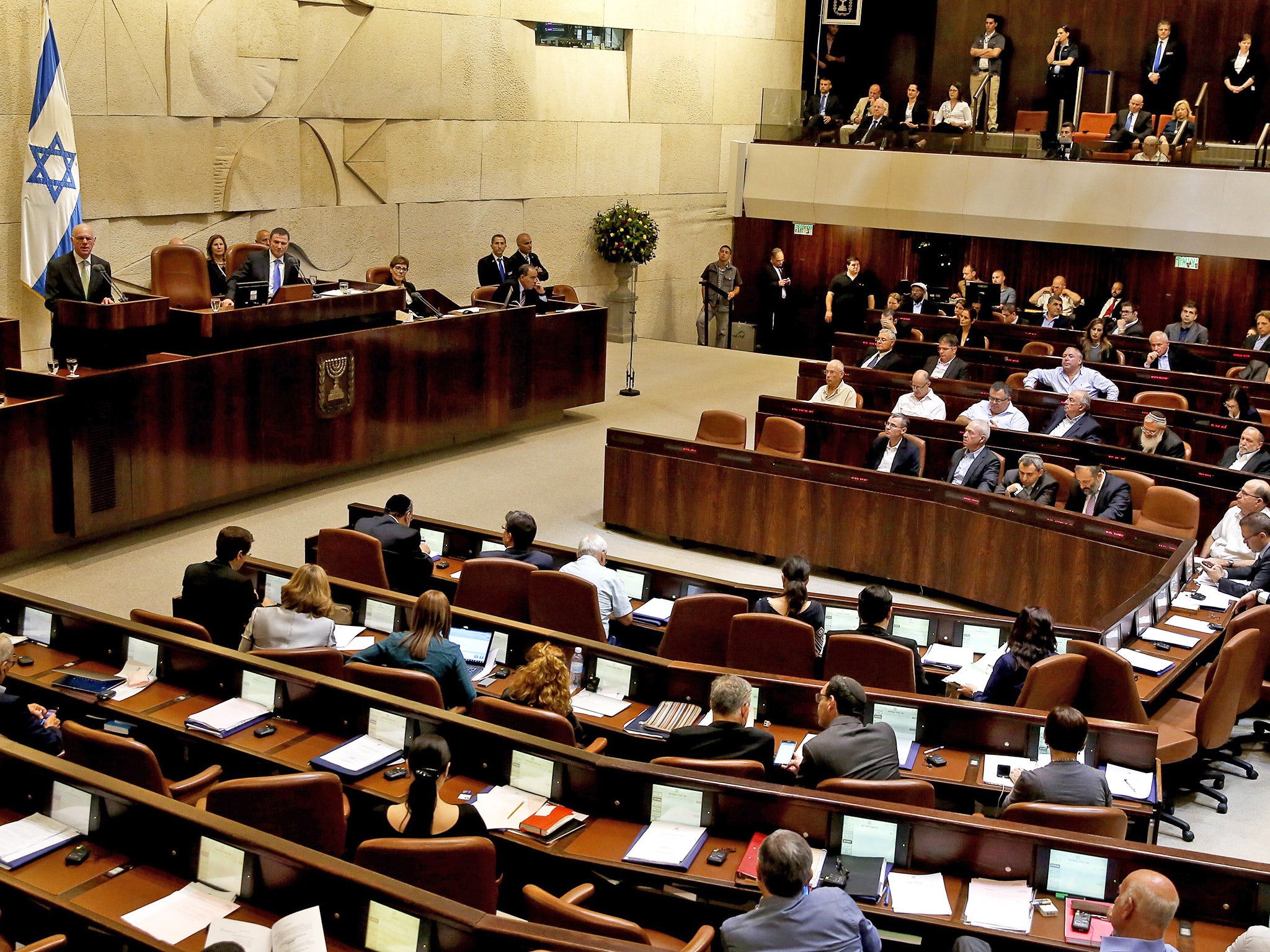Israeli parliament lifts dress code after protest over short skirt ban
Demonstrations were staged after Knesset security guards began turning away women they accused of being dressed immodestly, even though new rules did not specify skirt length

The Israeli parliament has suspended new dress code rules after staff protested against a ban on skirts deemed too short, according to reports.
Staff in the Knesset staged demonstrations this week after women were turned away for dressing inappropriately following a recent decision to ban politicians, other employees and visitors from wearing miniskirts and short dresses.
Around 30 women demonstrated at the entrance to the Knesset on Wednesday in defiance of the ban, posing for news cameras wearing above-the-knee skirts or dresses.
The women were supported by a man wearing a skirt over his trousers and a member of parliament who stripped down to his undershirt. A legislator Professor Manuel Trajtenberg also participated, complaining that women would soon “have to wear burkas”.
The new dress code was implemented on 30 November, when Israel’s parliament banned politicians, other employees and visitors from wearing miniskirts and short dresses, asserting that it applied immediately to everyone entering the building.
A notice on the official Knesset website stipulated that no tank tops or spaghetti tops, cropped tops, shorts or three-quarter length trousers, ripped trousers, shirts with political slogans, short skirts or short dresses, flip-flops or open-back clogs, were to be worn in parliament
Subsequently Knesset security guards began turning away women they accused of being dressed immodestly, even though the rules did not specify a skirt length.
One woman was reportedly asked to open her coat at the Knesset’s gates so that a guard could size up the length of her dress.
The issue has now been referred to a special committee, where lawmakers and aides — male and female — will take a look at the dress code and decide to what extent it should be implemented, according to Reuters.
Speaking on national radio on Thursday, parliamentary Speaker Yuli Edelstein said the Knesset had not gone, in his words, “Iran-Taliban”, and defended the need for decorum in the legislature.
Thirty-three of the Knesset’s 120 lawmakers are currently women, a record number in the country, but despite progress, many have complained of discriminatory treatment.
The Knesset to come under fire in November when it was discovered that the women's section in a new synagogue on the site could only fit about half the female MPs inside, and left no room for the hundreds of other women who work in the building everyday.
Join our commenting forum
Join thought-provoking conversations, follow other Independent readers and see their replies
Comments
Bookmark popover
Removed from bookmarks